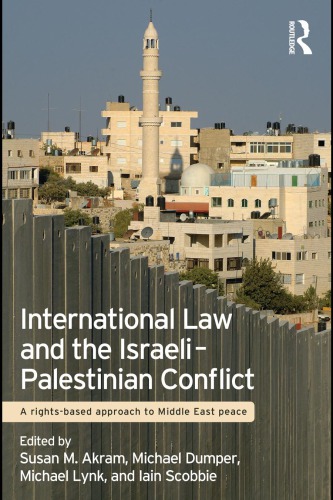

Most ebook files are in PDF format, so you can easily read them using various software such as Foxit Reader or directly on the Google Chrome browser.
Some ebook files are released by publishers in other formats such as .awz, .mobi, .epub, .fb2, etc. You may need to install specific software to read these formats on mobile/PC, such as Calibre.
Please read the tutorial at this link: https://ebookbell.com/faq
We offer FREE conversion to the popular formats you request; however, this may take some time. Therefore, right after payment, please email us, and we will try to provide the service as quickly as possible.
For some exceptional file formats or broken links (if any), please refrain from opening any disputes. Instead, email us first, and we will try to assist within a maximum of 6 hours.
EbookBell Team

5.0
50 reviewsThe Israeli-Palestinian conflict has long been intertwined with, and has had a profound influence on, the principles of modern international law. Placing a rights-based approach to the Israeli-Palestinian conflict at the centre of discussions over its peaceful resolution, this book provides detailed consideration of international law and its application to political issues.
Through the lens of international law and justice, the book debunks the myth that law is not useful to its resolution, illustrating through both theory and practice how international law points the way to a just and durable solution to the conflict in the Middle East. Contributions from leading scholars in their respective fields give an in-depth analysis of key issues that have been marginalized in most mainstream discussions of the Israeli-Palestinian conflict:
Written in a style highly accessible to the non-specialist, this book is an important addition to the existing literature on the subject. The findings of this book will not only be of interest to students and scholars of Middle Eastern politics, International Law, International Relations and conflict resolution, but will be an invaluable resource for human rights researchers, NGO employees, and embassy personnel, policy staffers and negotiators.